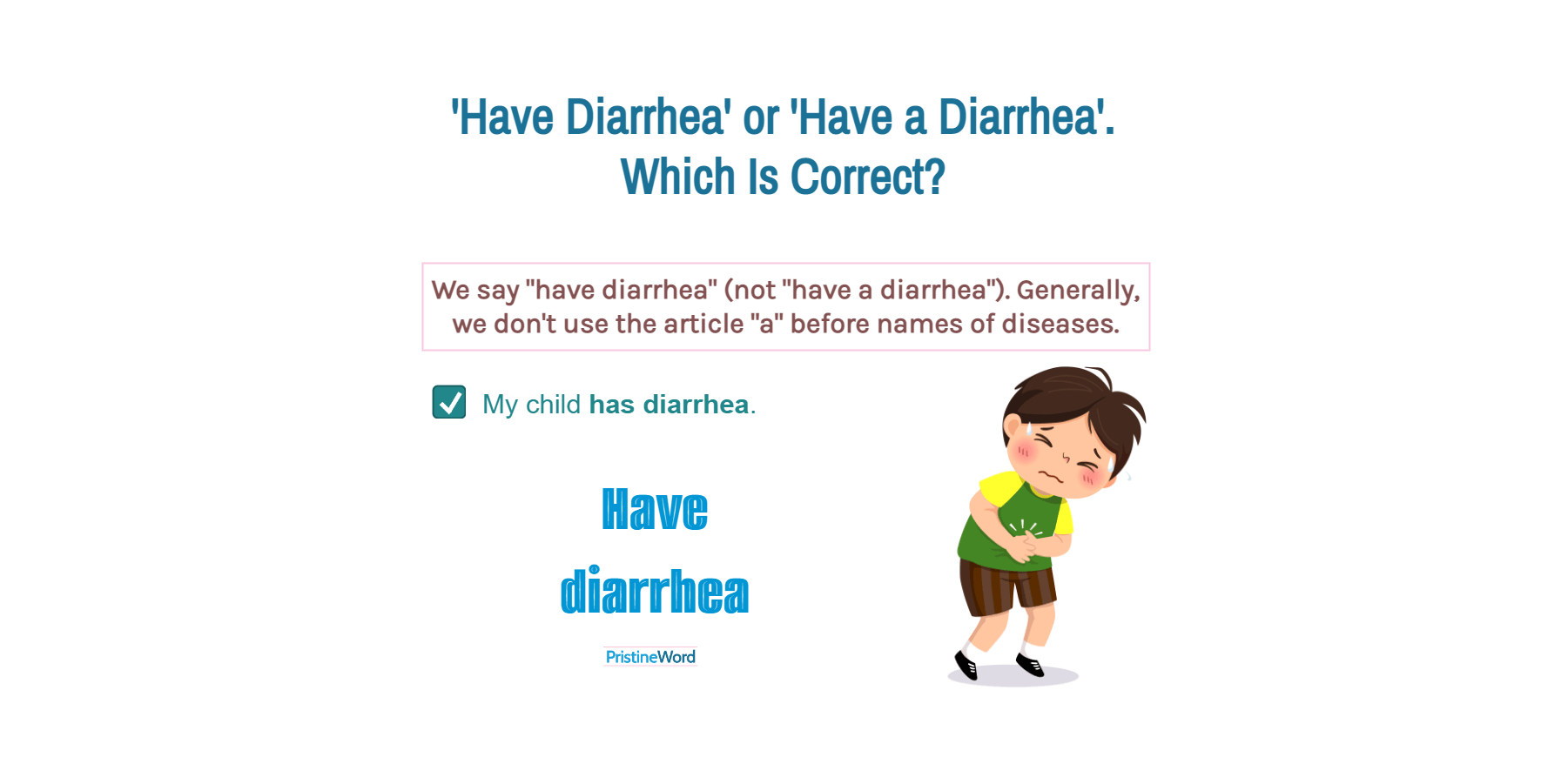We say "have diarrhea" (not "have a diarrhea"). Generally, we don't use the article "a" before names of conditions and diseases.
We say "have diarrhea" (not "have a diarrhea").
My child has diarrhea.
My child has a diarrhea.
Generally, we don't use the article "a" before names of conditions and diseases.
When you have diarrhea, drinking plenty of water can help alleviate your symptoms.
After having constant diarrhea for five days, he went to the doctor.
Follow the same practice with the expressions "treat diarrhea", "experience diarrhea", "cause diarrhea", "prevent diarrhea", etc.
How do you treat diarrhea in babies?
Food allergies can cause diarrhea.
You can use, however, a possessive pronoun (my, your, his, her, our, your, their) before "diarrhea". For example:
Contact your doctor if your diarrhea gets worse.
This is a partial list of illnesses and conditions that do not take the indefinite article "a":

